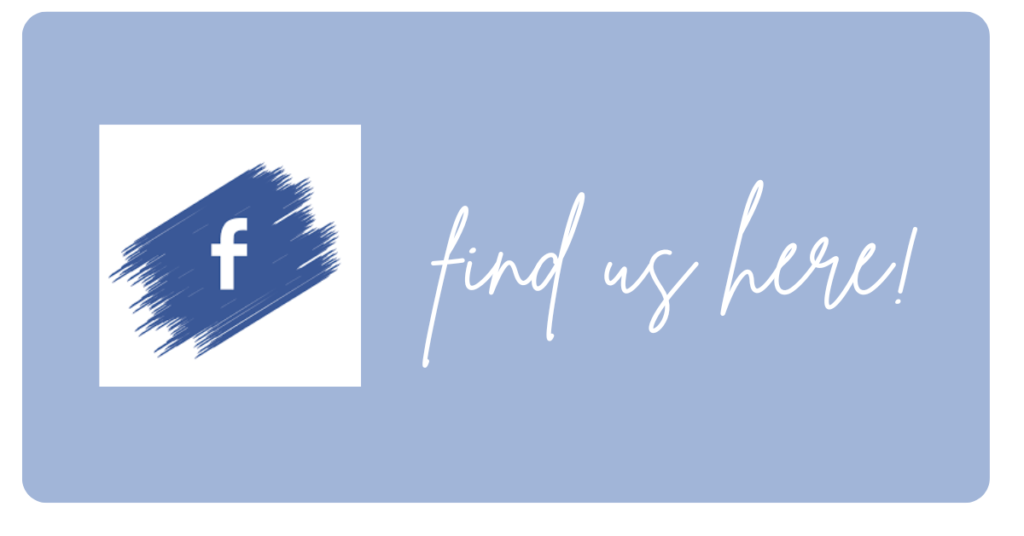In His Own Words: Noah Kahan Shares His Mental Health Journey
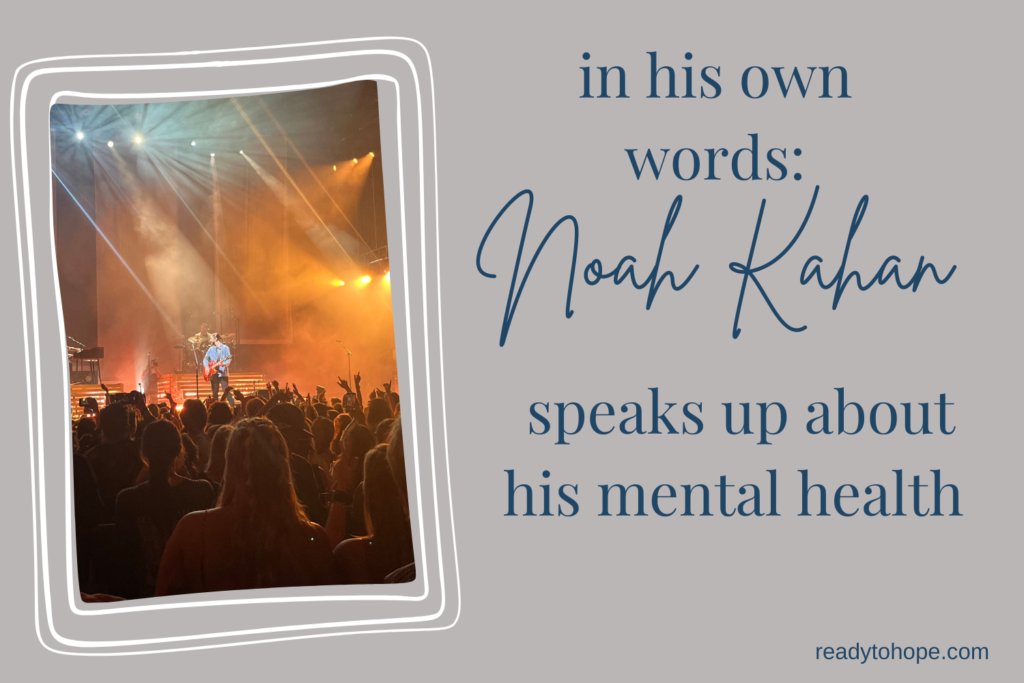
We hope you’ve found our posts this month insightful and encouraging, as we’ve devoted these past five posts to men’s (and young men’s) mental health awareness.
Our mission at Ready to Hope is always to address the stigma surrounding talking about mental health, as well as to create opportunities for young adults to gain connections, community, tools, and resources.
If you enjoy music at all, even a little bit, and have been listening the past couple years, you probably know the name Noah Kahan.
(Full disclosure: music is a huge part of my own mental health journey. I have loved music and especially live music my entire life. I’ve seen Noah Kahan live twice (so far), including road tripping to see him. So yes. I love his music. But I absolutely adore his message.)
Quick background just in case you are not a music person: Noah Kahan has been making music for many years, and his first album was released in 2019. He quietly toured and made music for a couple of years, and many would say that 2023 was his breakout year- the year that he went from known by a few fans to known by more or less all music fans.
And in many ways, getting honest about his mental health was what shifted things.
First of all: he’s a really funny guy.
Second of all: he’s extremely self-deprecating. His favorite subject for his humor is himself, in the form of laughing at his hang ups and mistakes and mess ups.
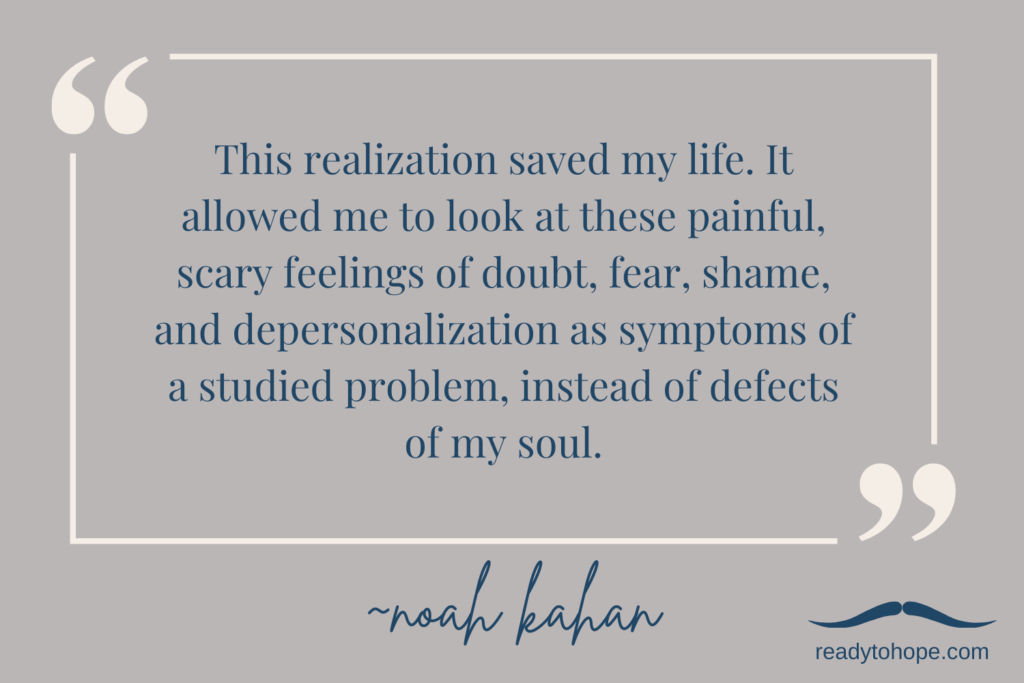
But even more importantly: he’s not afraid to write songs or posts that talk about his mental health struggles.
And what is so incredible about this? That honesty and transparency and authenticity has made the world adore him.
He’s a gifted musician who writes songs that move us to tears- and then he goes and admits that he hurts just like the rest of us.
I’m going to go on and share a few nuggets from his Time Magazine article, but that’s such an important thing to remember:
It’s his imperfections that make us love him. It’s his struggles that make us relate to him.
He’s just like us. He’s famous and gifted and successful… and yet he struggles just like we do.
So, in his own words:
Talking about his first experiences with struggling:
“It wasn’t until years later that my mother and I concluded I was probably experiencing episodes of depersonalization, likely due to the extreme anxiety and depression I had started feeling in my youth.
This realization saved my life. It allowed me to look at these painful, scary feelings of doubt, fear, shame, and depersonalization as symptoms of a studied problem, instead of defects of my soul. For much of my childhood, I hid my flaws, insecurities, and fear because I worried that acknowledging them would mean I was irredeemable and would be defined by these feelings. Allowing myself to understand I was suffering from something so common–even if it’s rarely discussed–provided a small light at the end of the tunnel: I was fighting an illness, and I was not alone.”
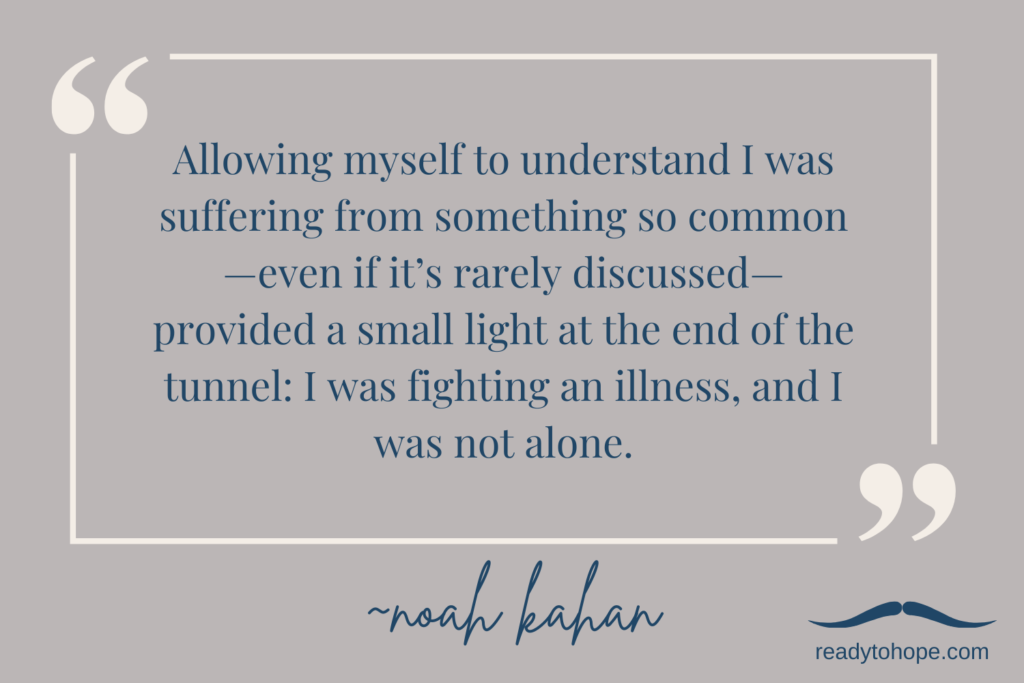
“I tried medications but felt unequipped to deal with the side effects, in particular the dulling sensation that made it hard for me to write songs. I would quit them cold turkey and hope I could figure it out myself, ultimately leading to a downward spiral. I cycled through dark, months-long depressive episodes, half committing to one treatment then relapsing into old habits again. I was writing songs about navigating depression and anxiety, yet was absolutely clueless as to how to manage my own.”
Ultimately he spent years wanting to get help but not wanting to stop pushing forward, trying to gain the following that would help him achieve what he wanted to achieve professionally.
And then, when covid hit and he couldn’t tour and keep pushing himself towards success, he was forced to stop. To go home. And it was then that he chose to get help.
“The pressure was off. No one knew when the industry would come back, so I started to simply make music I loved again. I returned to therapy and resumed taking medication. I regained control over my mental health and accepted that I would always have to be vigilant in watching for symptoms. I still felt anxious every day, but I learned how to work through the thoughts, to sift the rational from the far-fetched. I made an album that brought me so much creative joy that for the few weeks we worked on it, I felt like I was floating–but this time fully cemented in the reality of it all. I smiled and cried tears of joy and of sorrow for the years that I’d wasted running toward nothing. My album did well, and I eventually began touring again, this time maintaining my commitment to staying in therapy every week and taking medication that helped keep me grounded.”
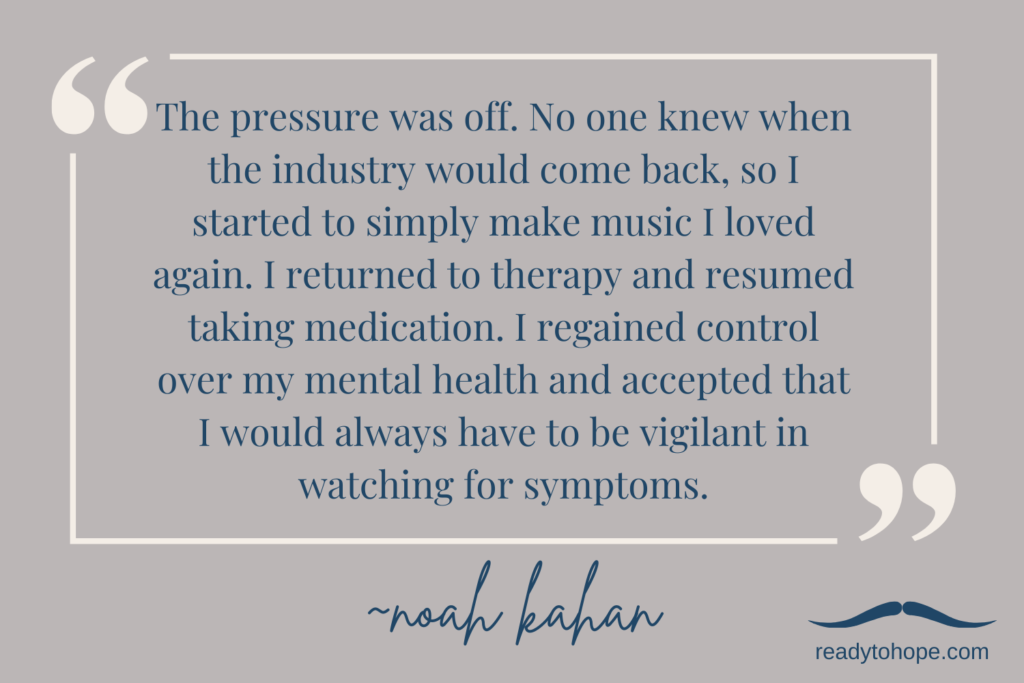
And finally:
“I still experience days where I feel myself drifting, and the old, familiar fear starts to set in. I go through days of anxiety when I can’t sleep or eat, and I wonder if I’ll ever feel better again. Sometimes I look at the crowds of people at my shows and feel an emptiness within myself that infuriates me. What do they see that I can’t? It’s a stark reminder of the truth that I have had to come to terms with: there is no perfect ending or conclusion in my journey with my mental health. These problems will likely be with me forever. The difference is now I know I can treat them with therapy, meditation, and medication. I can talk about them with friends and family. I can write them down, and I can make them smaller. Dedicating my craft to opening up about my mental health has provided me with an arsenal to live a meaningful life, and to not be defined by the chemicals in my brain.”
Incredible, right?
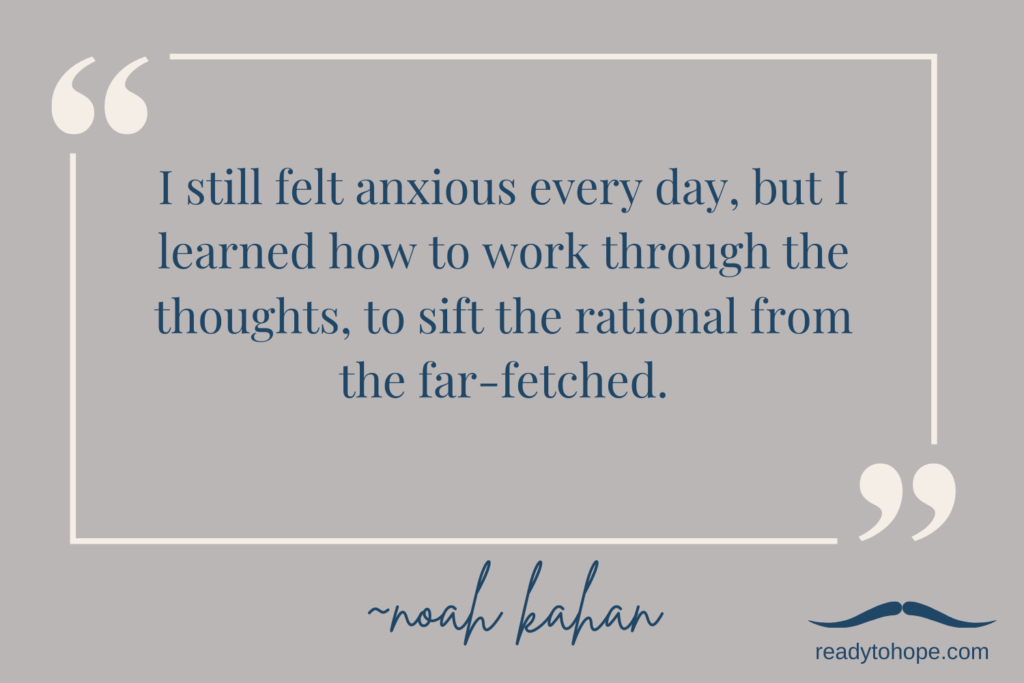
So as we wrap up November and looking at men’s mental health awareness, we just want to remind you, once again:
You are so not alone.
Every time you feel lost or lonely or anxious or depressed, hopefully you are now beginning to understand that there are so many, feeling those same feelings as well.
They might be sitting next to you in class, or at a stop light, or at a sporting event.
What will change that alone feeling for all of us is when we begin to embrace sharing the struggle.
It dramatically transformed the life of Noah Kahan and the men we talked about last week- so why would it be any different for you?
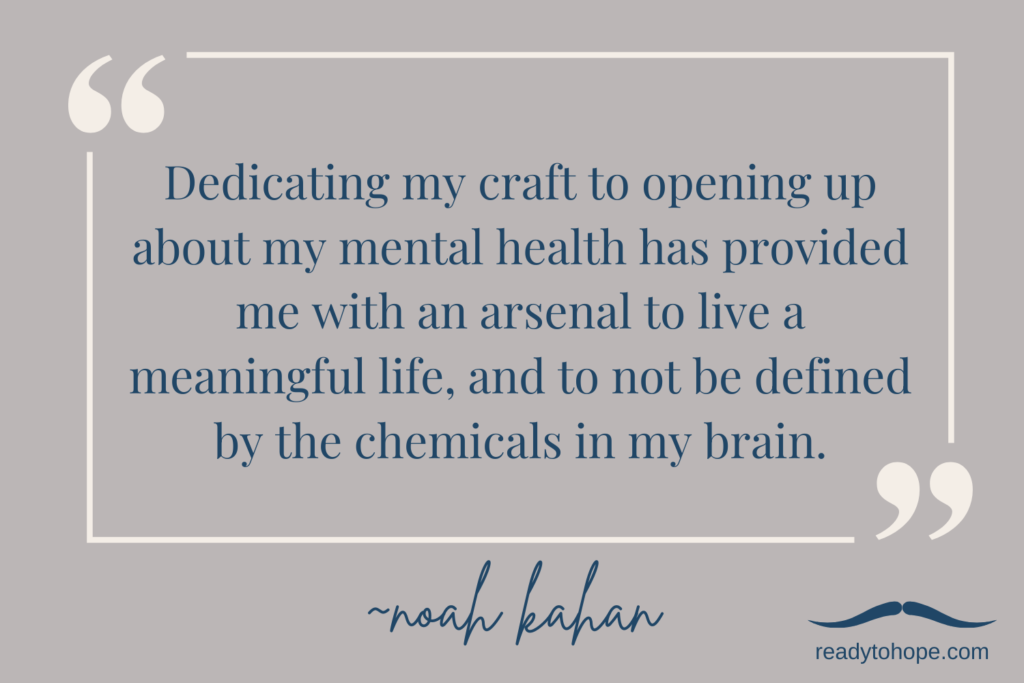
Our workshops are a great place to share whatever you’re dealing with. You can find out more about them HERE, but know this: even though we work to have an agenda to keep things interesting and moving along, you can bring anything. Anything. Anything you want to share, are struggling with, or just even want to get off your chest: we welcome the conversation.
Because conversations heal.
Join our email list below to stay in the know about our workshops and offerings!
Or follow along on social below.
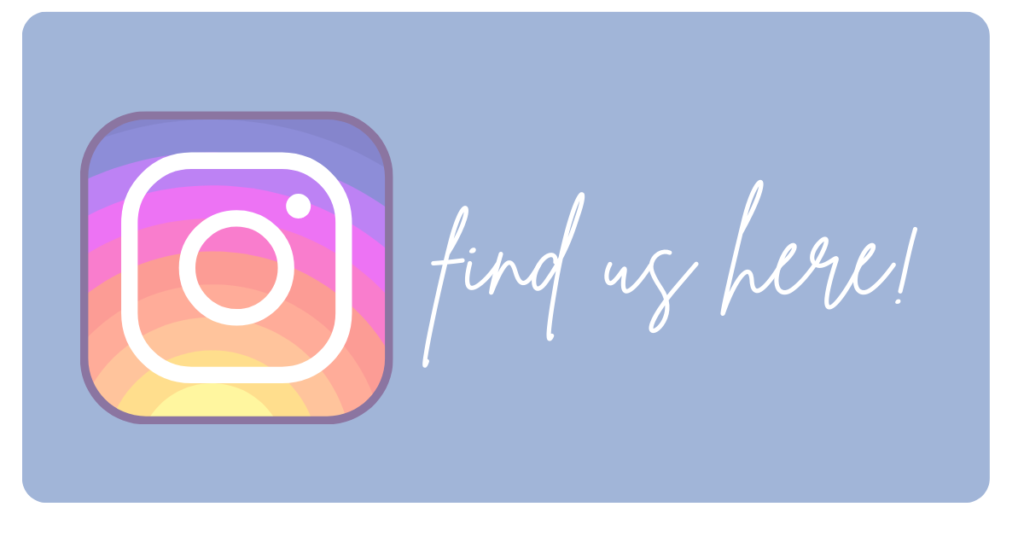
Until next time, remember: there is always a way through.


